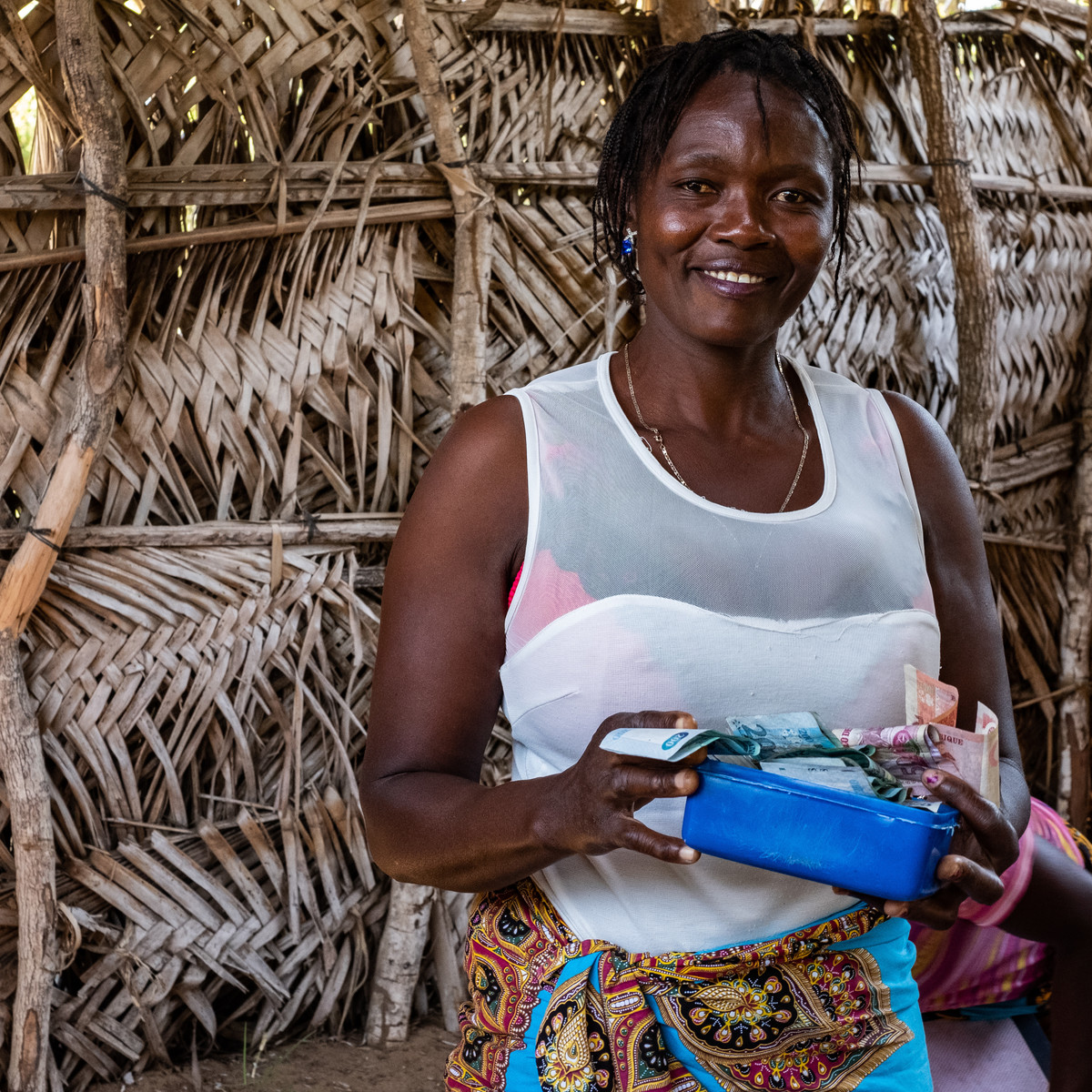

Even with all the other co-management mechanisms in place, fishers cannot adopt sustainable fishing practices if their economic vulnerability simply won’t allow them to. For this reason, Rare supports financial inclusion activities. This includes small-grant support for community enterprises. Some of these provide alternative income sources, like bakeries and hen/egg farming. Other enterprises, like fish processing and refrigeration services, enhance the income of fishing activities while decreasing the amount of waste and loss that drain fishers of income and communities of natural resources.
Rare also works with Savings Clubs, providing financial literacy training and creating a social setting in which those without bank accounts can access community-supported savings and small loans.
Together, these financial inclusion measures increase household income and financial resilience, decreasing fish workers’ vulnerability to economic shocks. This, in turn, supports sustainable fishing by allowing fishers to make decisions based on their long-term interests rather than short-term financial pressures that can drive overfishing.
Social cohesion is a key factor in financial inclusion. Be it small enterprises collectively run by a group, or Savings Clubs that depend on active membership and collective action, financial inclusion and behavior adoption are predicated on the connections between people. Relatedly, effective financial inclusion implementation can only occur when program staff are engaged with community members to build trust, increase local capacity, and troubleshoot as issues arise.
One important lesson is that, as in many things, effort is not enough to make financial inclusion successful. Simply providing seed funding for microenterprises, or setting up a Savings Club, will not lead to meaningful and lasting financial change. However, if these beginnings are followed by trainings to build capacity and financial knowledge, and if community groups are empowered to learn from mistakes as they embark on new financial activities, financial inclusion can be truly powerful.
We also learned about the important overlap of financial inclusion and gender equity. Women in coastal Mozambican communities are often subject to economic and physical violence, at times prevented from earning money of their own or deciding how household income should be spent. Because Savings Clubs are majority women, they offer a unique opportunity for women to increase their economic power within households and across communities. This holds exciting opportunities, and we are working now to identify specific, targeted, and evidence-based strategies for bolstering women’s leadership and gender equity in Mozambican fisheries livelihoods.